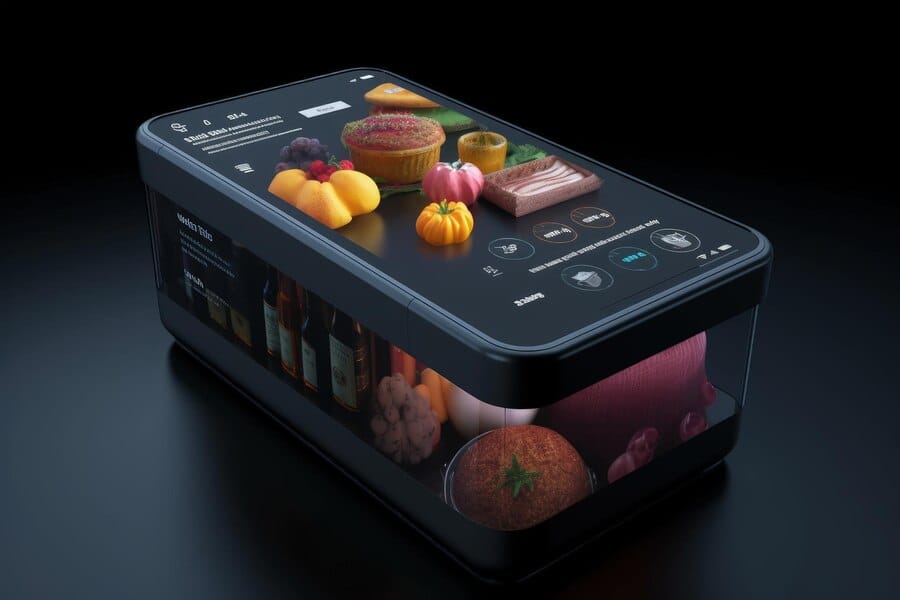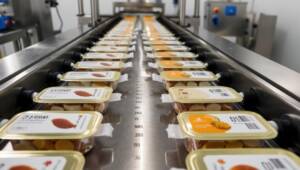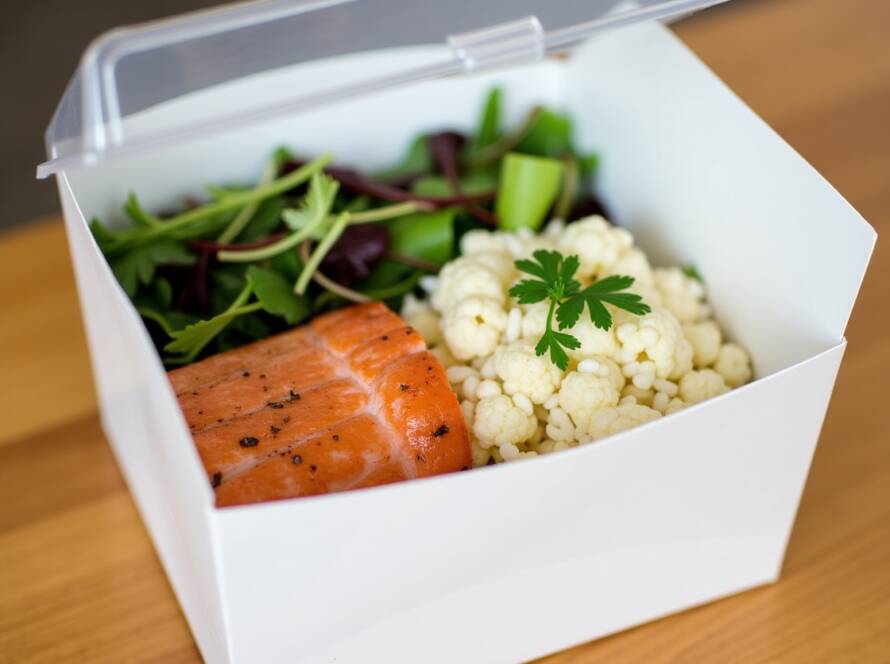
Smart packaging in the food industry is an important development in the world of packaging. It represents a set of technological solutions that aim to improve the monitoring of food products, increase their shelf life, and improve their safety. These technologies rely on advanced applications that can respond to environmental conditions or help track products through supply chains.
In this article, we will shed light on the concept of smart packaging in the food industry, its importance, its various applications, and how it can positively impact the food sector.
The importance of smart packaging in the food industry
Smart packaging in the food industry play a vital role in ensuring the quality and safety of food products. With the increasing need to improve the efficiency of supply chains and provide protection for products from external factors such as humidity, heat, or oxygen, smart packaging has become an innovative solution.
Improving food safety
One of the primary goals of smart packaging in the food industry is to improve food safety. Thanks to sensors embedded in some types of packaging, vital factors such as temperature and humidity can be monitored inside the package. This helps ensure that food products are stored in ideal conditions and reduces the risk of spoilage or contamination.
Product Tracking
One of the important applications of smart packaging in the food industry is the tracking system. Using RFID chips or smart barcoding technologies, the path of food products can be tracked from the production stage until they reach the consumer. This enhances the transparency of supply chains and allows consumers and suppliers to monitor the status of products at any moment.
Smart Packaging Technologies
Smart packaging technologies are numerous in the food industry, and include a range of applications that use smart materials or sensors to increase the effectiveness of packaging. Here are some of the most prominent of these technologies:
Interactive Packaging
Interactive packaging is a type of smart packaging that can react to external conditions, such as changes in temperature or humidity levels. Some packages change color when exposed to excessive heat, providing a visual indication of the condition of the product.
Smart Sensors
Smart sensors are an essential part of smart packaging in the food industry. They monitor environmental factors inside the package, such as oxygen levels or gas emissions, helping to detect the condition of the product and its suitability for consumption.
Digital Packaging
Digital technologies embedded in packaging, such as smart codes or interactive labels, allow access to detailed information about the product through smartphones. Consumers can learn about the source of the product, its production date, and the value of nutritional elements.
Benefits of Smart Packaging for the Food Industry
1-Reducing Waste
One of the main benefits of smart packaging is reducing food waste. With the ability to continuously monitor the condition of food, spoilage can be reduced and food products can be disposed of before they become unfit.
2-Enhancing Consumer Experience
Smart packaging provides an enhanced consumer experience. For example, consumers can check the condition and quality of a product before purchasing. Some technologies also provide the ability to verify the authenticity of products and protect them from counterfeiting.
3-Improving Operational Efficiency
In food supply chains, smart packaging helps improve operational efficiency. Human errors in storage and shipping can be reduced, leading to better inventory management and increased customer satisfaction.
The Future of Smart Packaging
The future of smart packaging in the food industry is promising. With the continuous advancement in technology, we expect the emergence of new packaging materials and the development of artificial intelligence to improve food efficiency and safety. These technologies are also expected to become more affordable over time, making them more accessible to everyone.
Expected Developments
In the near future, we are expected to see fully biodegradable and environmentally friendly smart packaging materials. This will help reduce the environmental impact of the food industry.
Integration of Artificial Intelligence
AI may help improve the accuracy of sensors and better monitor products, which will contribute to improving food quality and extending the shelf life of products even further.
The Role of Smart Packaging in Promoting Sustainability
With the global trend towards achieving environmental sustainability, smart packaging has become a powerful tool to achieve this goal in the food industry. Companies are developing smart, environmentally friendly packaging solutions by reducing the use of plastic and employing biodegradable materials.
Biodegradable Packaging
The development of biodegradable packaging is part of the sustainability vision, as it helps reduce the accumulation of plastic waste. Some companies are now working to use natural materials such as starch or cellulose to produce biodegradable smart packaging, which contributes to preserving the environment and meeting the requirements of sustainability-conscious consumers.
Reducing the carbon footprint
In addition to improving quality and reducing waste, smart packaging can help reduce companies’ carbon footprint. By improving efficiency in supply chains and reducing the need for transportation or excessive refrigeration, companies can reduce carbon emissions associated with production and distribution processes.
Using AI in Smart Packaging
With the development of artificial intelligence (AI), some companies have begun integrating AI technologies into smart packaging systems to improve monitoring and decision-making processes faster and more accurately.
Improving Quality with AI
AI can analyze data collected from sensors inside packaging in real time. Using that information, any changes in product quality can be identified and quick decisions can be made, such as recalling damaged products or optimizing the distribution process.
Predicting Spoilage
Smart systems can also predict when products will spoil based on the environmental conditions around them. This allows companies to optimize distribution schedules or take preventative measures before products spoil, enhancing operational efficiency.
Smart Packaging and Improved Consumer Engagement
Some smart packaging applications improve consumer engagement with products by providing additional information and live tracking technologies that consumers can use via their smartphone.
Enhancing trust through transparent information
With smart packaging, consumers can access detailed information about the product simply by scanning a QR code or using RFID technologies. This information includes the source, production date, storage conditions, and even freshness status, which enhances confidence in the product and encourages consumers to purchase.
Interactive shopping experience
By leveraging augmented reality (AR), smart packaging can provide an innovative shopping experience. Consumers can scan the package and receive personalized recommendations, recipes, or customized marketing content. This type of engagement can increase customer engagement with the brand and enhance the user experience
Using smart packaging, companies can improve their products and meet consumer expectations more efficiently, making this one of the most promising areas in the food industry.
With the development of smart packaging in the food industry, companies are increasingly interested in adapting these technologies to improve their operations. This is where ProNano Food Industry Consulting comes in, providing specialized consulting that helps companies adopt and implement smart packaging technologies effectively.
Whether you are a startup or an established organization, ProNano can provide the technical support and information needed to properly guide your investments in this field. For personalized consultations, you can contact ProNano’s team via email or phone listed on the company’s website
Read more about food industry consulting



